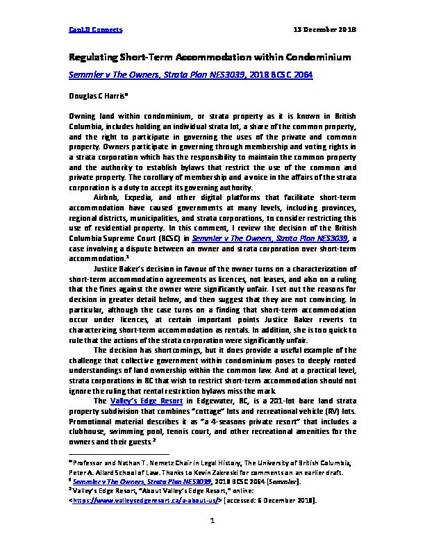
- Condominium,
- Short-Term Accommodation,
- Regulation
Owning land within condominium, or strata property as it is known in British Columbia, includes holding an individual strata lot, a share of the common property, and the right to participate in governing the uses of the private and common property. Owners participate in governing through membership and voting rights in a strata corporation which has the responsibility to maintain the common property and the authority to establish bylaws that restrict the use of the common and private property. The corollary of membership and a voice in the affairs of the strata corporation is a duty to accept its governing authority. Airbnb, Expedia, and other digital platforms that facilitate short-term accommodation have caused governments at many levels, including provinces, regional districts, municipalities, and strata corporations, to consider restricting this use of residential property. In this comment, I review the decision of the British Columbia Supreme Court (BCSC) in Semmler v The Owners, Strata Plan NES3039, a case involving a dispute between an owner and strata corporation over short-term accommodation.
